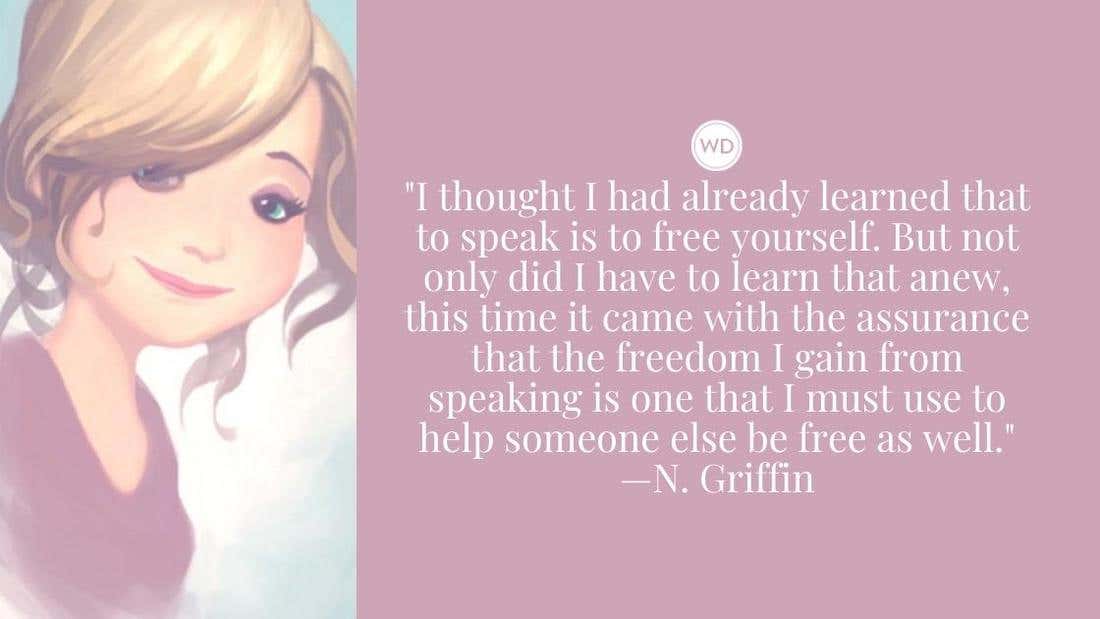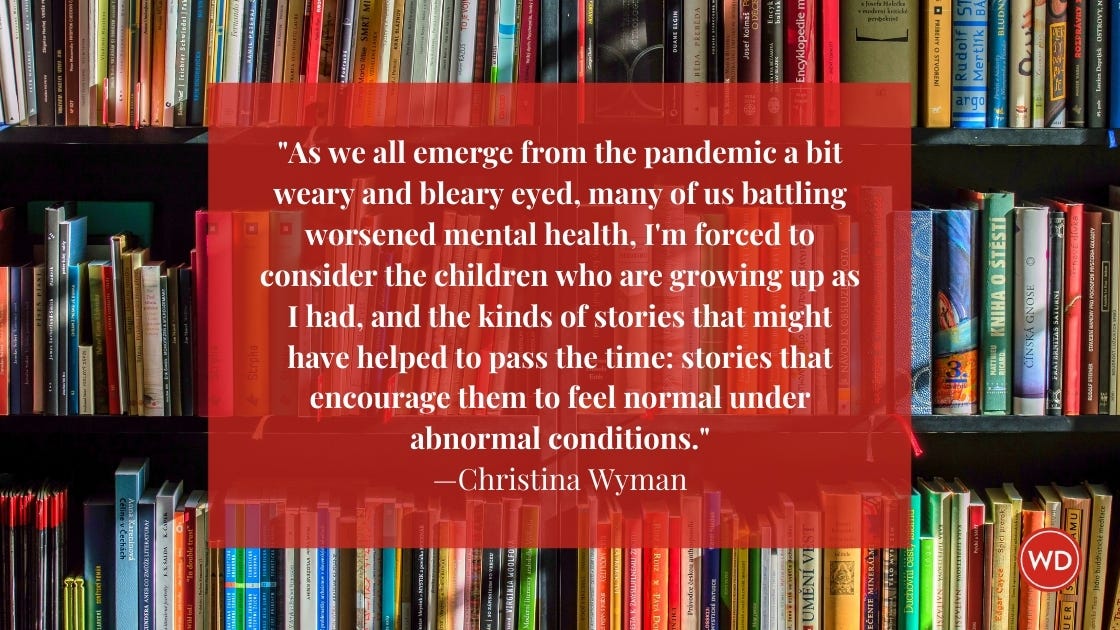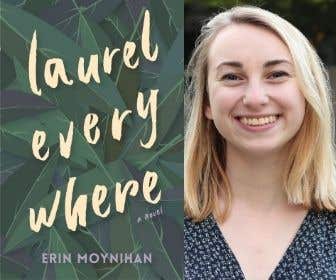Waiting Out a Dark Cloud
Philip Beard persevered through the publishing industry’s post-9/11 trauma to publish his novel, Dear Zoe. His story offers a telling look at how the industry’s mood can launchor crusha writing career.
Philip Beard couldn't help but wonder if he'd made a mistake. It was 2002, and the attorney and 41-year-old father of two (plus a baby on the way) had left his unfulfilling law career—with his pregnant wife's hesitant blessing—for the fragile world of full-time fiction writing.
He had an agent but hadn't sold anything, and was burdened with the self-doubt brought on by the 54 rejection letters he'd received for his novel, Dear Zoe. Should he go back to life as a lawyer? Could he—or should he—continue writing?
"I tried to write another novel but really couldn't make headway," he says. "I didn't know if I could spend another year of my life writing when I didn't know if I was good enough."
A singular mood
"Dear Zoe is a book I loved from the very beginning," says Beard's agent, Jane Dystel. It's the story of teenage girl coping with the accidental death of her 3-year-old sister on September 11, 2001.
"We couldn't sell it, and I couldn't understand why," Dystel says.
The answer, it seems, had everything to do with the climate. Because of the publishing world's relative proximity—giant houses are within blocks of one another in New York City—a single mood can ripple through the industry and define its output as a whole. In the aftermath of 9/11, the book-publishing industry in New York was traumatized, and its general mood was black and shaken. Did this influence which books were published in the aftermath?
Stellar rejections
Dear Zoe reads as if you're listening to a teenager trying to come to terms with the emotional destitution of tragedy. It doesn't, in any way, sound like a 40-year-old man pontificating about 9/11. The novel has an epistolary format; it's a series of letters from Tess, the 15-year-old narrator, to her little sister, Zoe. Tess writes the letters as therapy, trying to come to terms with how her sister's death could so severely impact her private world, while the people around her are focused on the much larger tragedy of the terrorist attacks. It's a high-minded concept that could seem contrived if Tess's voice didn't ring so true.
Everyone who read Dear Zoe seemed to agree that the book was extraordinary—the rejection letters were stellar. In one, an editor wrote: "This guy's the real thing!" An editor at Little, Brown was flabbergasted when her editorial board turned Dear Zoe down. "I thought it was a slam dunk," she wrote.
"I didn't know whether to be cheered by that or slit my wrists," Beard says, "but that was the last straw for me."
After the last of the rejection letters for Dear Zoe came in, Beard asked Dystel if she'd try selling the international rights if he self-published the novel. Dystel said she would, an unusual step for an agent of her clout (other clients include New York magazine columnist Gael Greene, bestselling novelist David Morrell and Illinois Senator Barack Obama). "One of the reasons I stuck with Philip is because I love this man's writing. I really believe in Philip Beard."
One last shot
"I embraced the self-publishing project as much for my mental well-being as anything," Beard says. "To go back to the office and start practicing law again would've felt like surrender." So Beard dove headlong into the project of printing and promoting 5,000 copies of Dear Zoe with his dwindling savings.
At the onset of his self-publishing venture, he hired a bevy of talented professionals to design, distribute and promote Dear Zoe, including seasoned designer Amy King and distributor Midpoint Trade Books. Executives at Midpoint, a distributor for independent presses that handles mainly nonfiction, felt Dear Zoe had the potential to significantly expand their company's fiction presence.
With a galley (printed, unbound pages) of Dear Zoe in hand, Beard went to visit an old friend, John Towle, owner of the indie Aspinwall Bookshop in suburban Pittsburgh. Beard was interested in Towle's hand-selling acumen on the bookstore floor. Towle, a literature buff with roots in the Pittsburgh writing scene, had seen enough first novels to know that Dear Zoe deserved the attention of a major publisher.
Towle told Beard he wanted to show the book to Jason Gobble, his sales rep from Viking/Penguin. "Fine, whatever," Beard said with a wave of his hand, letting him know that the Viking/Penguin house had already said no.
Fortunately for Beard, Gobble—voted "Sales Rep of the Year" by Publishers Weekly only months later—is the consummate middleman, with the ear of booksellers and publishers alike. He took Dear Zoe to Clare Ferraro, Viking/Penguin president.
In an uncanny twist of fate, the day Beard would've signed the $12,000 printer's check for Dear Zoe, Ferraro called his home office to say, "We love it," and make an irresistible offer. She and Dystel made a deal within 24 hours.
A matter of timing
The lightning-fast response to Dear Zoe from Viking/Penguin in March 2004 begs the question: Did Beard's book, in fact, demand too much, too soon of people profoundly affected by 9/11?
At the time Dystel was negotiating rights to Dear Zoe (18 months after the book first made its rounds), other 9/11 novels were taken on by New York houses. Ian McEwan's Saturday and Jonathan Safran Foer's Extremely Loud and Incredibly Close both explore the impact of 9/11. All three novels were released in April 2005, and four more 9/11 novels were set to release shortly after.
"The relationship with 9/11 came out of the seeming impossibility of that event, of anything mattering other than that event," Beard says. "I really think there was a period of time when it didn't seem like anything of significance was ever going to happen again. It overtook and silenced everything."
Beard says he didn't intentionally choose to write about 9/11. "I remember having this conversation with Jane [Dystel], and she said, 'I don't know if New York is ready for a 9/11 novel,' " Beard says. "And I said 'How can you write a novel that takes place in 2001 and doesn't mention it?' It's the biggest elephant that ever sat in the middle of the room!"
An element of grace
For every writer who feels a righteous pride in his work, there's an element of grace in the story of Dear Zoe. Anyone who's been to a top-shelf bookstore knows that booksellers, the people who read the latest releases and sell the best of them passionately, are essential to the relationship between writers and readers. Bookshop owners, salespeople and agents are also people who love great books and will go to great lengths to see them published. And that's what happened with Dear Zoe.
Though it's difficult to think of 9/11 as part of the background in a novel, the tragedy isn't at the core of Dear Zoe. "The core of this book is Tess's coming of age and her coming to terms as best she can with what happened to her sister," says Beard. "Every story takes place in a particular world, and our particular world has 9/11."









